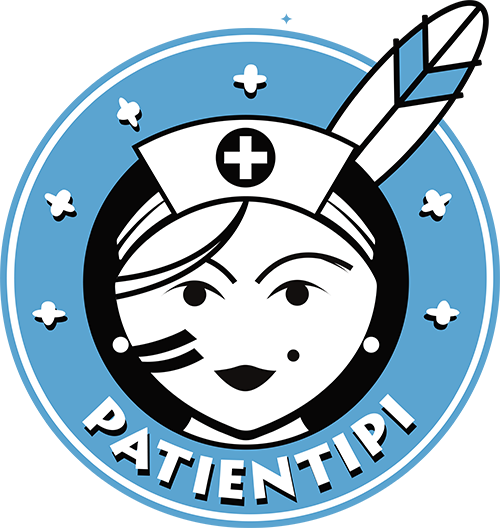Turkey
Dear fellow caregivers,
You are welcoming a patient from Turkey.
Here is a list of useful information to know in the context of their medical care.
General Information
Distance Paris – – – – > – – – – – – Ankara: 1975 miles
34.6 million inhabitants / Average salary: $415.18 per month
Literacy rate: 96.2% / Life expectancy: 78.6 years
Spoken languages : Turkish
● There are many “grey areas” (where the situation and rules are not well known) within a culture that tries to respect secular norms but in which 99% of the population claims to be Sunni Muslim.
● Certain surgical interventions are permitted: Circumcision, blood transfusions, in vitro fertilization, organ transplants and donation, and abortion.
● Turkish hospitals are required to offer abortion up to 10 weeks, upon request and with the consent of the partner. Nevertheless, the majority of hospitals reflect the government’s position rather than abide by the law, as the president, Recep Tayyip Erdoğan, is against abortion and caesarean section.
Communication

● Turkish is the official language. However, there are some different languages and dialects depending on the region of origin).
● Turks greet each other with a firm handshake. Men usually wait for women to reach out their hands first.
● There is a strong secular tradition in Turkey. The constitution recognizes freedom of worship and protects different religions. However, the majority of the population is Muslim.
● Traditionally, the head of the family is asked to be consulted when medical or other problems are discussed. The head of the family would then communicate the decisions made.
● Sexuality is a sensitive topic that should be approached with caution.
Beliefs, Practices & Rituals

● Muslims pray 5 times a day towards Mecca: at dawn, at noon, in the afternoon, at sunset and in the evening.
● During Ramadan, a small amount of blood is allowed and does not interrupt the fast.
● During Ramadan, the suffering person is allowed to eat to regain strength if the doctor deems it necessary.
● During Ramadan, therapeutic massage by caregivers is permitted and does not interrupt the fast, unlike comfort and wellness massage. A woman must be cared for by a female caregiver, and vice versa for men.
● Some Muslims believe in the “evil eye”. To protect themselves, they use a lucky charm called Nazar Boncuk.
Eating habits

● Turkish cuisine generally consists of dishes with sauces prepared with cereals, various vegetables and meat, cold dishes cooked with olive oil and pastries. The Turkish meal usually begins with a soup (çorba) of low consistency.
● In Turkish culture, breakfast consists of a multitude of products including cheese, butter, olives, eggs, tomatoes, green peppers and honey.
● Turkish cuisine has a wide variety of meat dishes. Lamb dishes are preferred.
● Turkish cuisine has a wide range of pastries (sweet and savoury). Baklava is one of the most popular desserts.
● Ayran (a salty yoghurt drink) is the preferred cold drink of the Turks. It can accompany the vast majority of dishes.
● Turkish coffee is a world-famous coffee that can be served sweet or bitter.
Pregnancy and motherhood

● In recent years, the “Doğum Odası Süsleme” has gained in popularity. It is a celebration during which gifts are brought in and the mother’s hospital bed is decorated.
● As the child’s education begins in the mother’s womb, the mother does not eat anything without asking permission from the person offering it. According to this belief, any food eaten without the permission of the owner could leave a mark on the child’s body.
● The woman’s appearance and attitude during pregnancy, the foods she chooses, and the baby’s gestures are interpreted to guess the baby’s sex. These beliefs vary by region.
● The baby that is born with placental tissue will be lucky all his or her life, according to these beliefs. That’s why families keep this tissue.
End-of-life care

● It is preferable that a religious counselor be present at the bedside to recite the Shahada, profession of faith. This can also be recorded and broadcast. If possible, it is preferable to place the patient’s head in the direction of Mecca.
● The family may want to organize the body washing ritual.
● Similarly, the family may want to arrange a funeral for miscarriages.
● Autopsies are accepted only if they are required for medical research. In religion, it is said that the body must be returned to Allah in its entirety, in the same form it was given.
● In case of serious illness, some people prefer to stay in hospital and not be a burden to their family. Others believe that staying will not be beneficial and will not bring anything more. Turkish society defines itself as altruistic, willing to put the comfort and needs of others ahead of their own.
● Most people want to know their diagnosis, but generally prefer to hide it from their loved ones.
Examples of Cases Encountered
This section allows us to share experiences. Feel free to share yours with the community.
Sources :
Cleveland Clinic – Diversity Toolkit
Sahin Aksoy – Ethical Considerations on the End of Life Issues in Turkey
Excision Parlons-En – Cartographie Mondiale des Pratiques d’Excision
UNICEF – Mutilations Génitales Féminines / Excision
